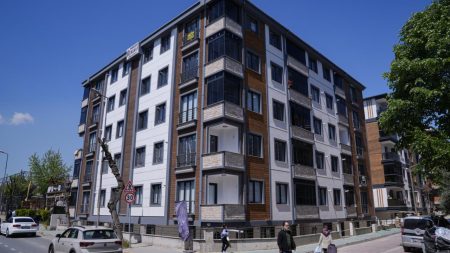A man named M.S.A. living in Ankara filed for divorce from his wife V.A. in 2019 through his lawyer Aykut Özdemir. The plaintiff M.S.A. claimed in the petition that his wife subjected him to “emotional abuse”, especially citing his weight as a reason, which also turned into sexual unwillingness.
The husband argued that despite both of them earning the same amount, his wife did not take care of household chores and left the financial burden of the house on him. Apart from seeking a divorce, the husband also requested 30,000 TL each in material and moral compensation from his wife.
During the same period, the woman also filed a “counter-lawsuit” against M.S.A. She stated that she married her husband knowing his physical characteristics, and that belittling, emotional abuse, and not contributing to household expenses were not the case. The woman explained that her husband took out loans without her knowledge, and she was forced to pay off that debt, which caused her distress under the threat of seizure.
The woman mentioned that her husband frequently expressed his lack of love for her and requested 70,000 TL in material and 100,000 TL in moral compensation.
The court found the woman unjustified. Ankara 7th Family Court decided on the divorce of the parties but ruled in favor of the husband. According to the reasoned decision of the court, based on the evidence and witness statements gathered during the trial, it was stated that the woman was at fault due to using derogatory expressions towards her husband because of being overweight, following diets and exercise programs, and avoiding sexual intercourse.
The reasoned decision also evaluated the husband’s borrowing without the woman’s knowledge as follows: “As the witness of the woman stated that the woman was aware of the situation during their joint conversation and they continued to live together thereafter, it is considered that the woman forgave this fault of hers or at least tolerated it.” It was noted in the decision that there were no concrete evidence or witness statements regarding the woman being subjected to violence or other allegations.
In the specific case, it was understood that the husband entered into marriage for a happy union, but the marriage ended due to the full fault of the wife. Therefore, considering the economic and social situations of the parties, the court ruled in favor of the husband by awarding him 15,000 TL in material compensation. Regarding the acts that led to the divorce, due to the nature of the woman’s actions attacking the husband’s personal rights, a moral compensation of 5,000 TL was awarded based on the injustice and characteristics of the acts. The decision was also upheld by the appellate court and later by the Court of Cassation in the appeal process.















